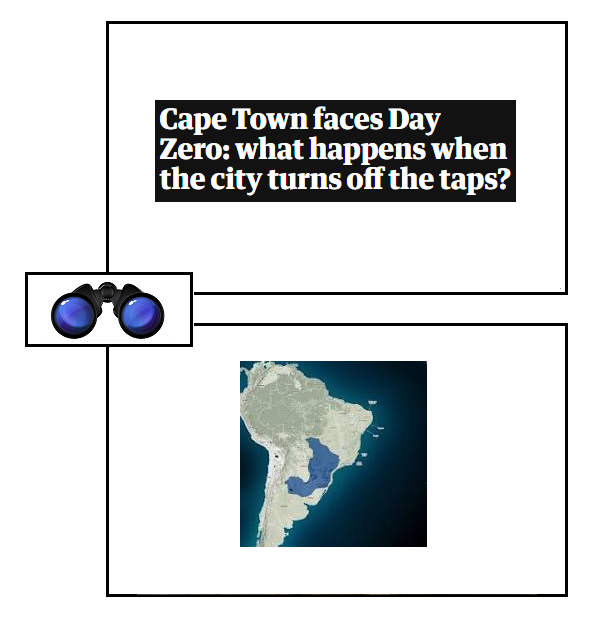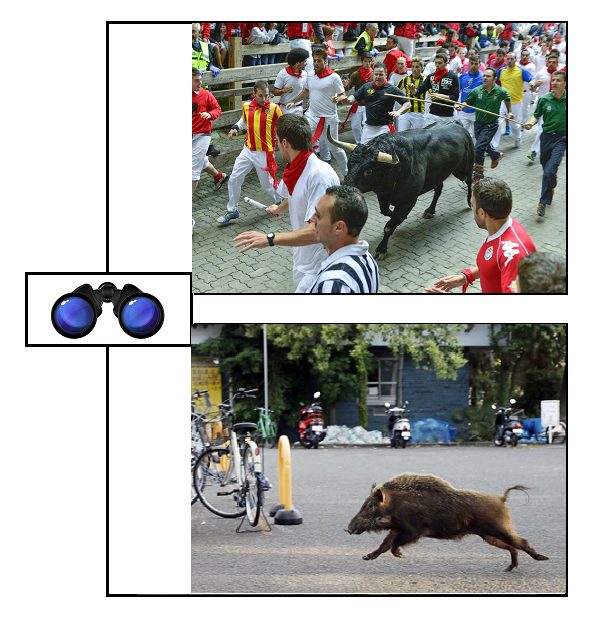[ by Charles Cameron — when a city hits water zero, & when a vast aquifer is up for commercial grabs ]
.
I would like to scare you two ways:

**
The Guardian’s Cape Town headline (upper panel, above) alerts us to the imminent failure of the first major global city’s water supply:
The head of Cape Town’s disaster operations centre is drawing up a plan he hopes he never has to implement as this South African city on the frontline of climate change prepares to be the first in the world to turn off the water taps.
“We’ve identified four risks: water shortages, sanitation failures, disease outbreaks and anarchy due to competition for scarce resources,” says Greg Pillay. “We had to go back to the drawing board. We were prepared for disruption of supply, but not a no-water scenario. In my 40 years in emergency services, this is the biggest crisis.”
Anarchy due to competition for scarce resources — would you care to say more about how virulent that strain of anarchy might be, and how its epidemiology would intersect with those of water shortages, sanitation failures, and disease outbreaks?
**
The lower image, above, shows the extent of the Guarani aquifer — water supply for the vast lands above it, and the fauna, flora and humans who inhabit those lands.
What’s the problem?
As a Canadian government page puts it, Barlow warns Nestle is seeking control of the Guarani aquifer in South America:
Mint Press reports, “A concerted push is underway in South America that could see one of the world’s largest reserves of fresh water soon fall into the hands of transnational corporations such as Coca-Cola and Nestle. According to reports, talks to privatize the Guarani Aquifer – a vast subterranean water reserve lying beneath Argentina, Brazil, Paraguay, and Uruguay – have already reached an advanced stage. The deal would grant a consortium of U.S. and Europe-based conglomerates exclusive rights to the aquifer that would last over 100 years.”
Cash would dance in the heads of the relevant CEOs — “including Nestle CEO Paul Bulcke, Anheuser-Busch InBev CEO Carlos Brito, Coca-Cola CEO James Quincey, and Dow Chemical CEO Andrew Liveris” — while guns would no doubt protect their “rights”.
We’ll copyright it, we’ll patent it, no, we’ll — bottle it!
**
Justice William O Douglas in A Wilderness Bill of Rights, argued the need for a “Bill of Rights to protect those whose spiritual values extend to the rivers and lakes, the valleys and the ridges, and who find life in a mechanized society worth living only because those splendid resources are not despoiled.” In his now celebrated dissent in Sierra Club v. Morton, he suggested the courts should give standing “in the name of the inanimate object about to be despoiled, defaced, or invaded by roads and bulldozers and where injury is the subject of public outrage.”
In the High Country News article, Should nature have standing to sue? from which I’ve taken those quotes, we discover:
Douglas’ views were inspired by his own experiences in the wild. He grew up in Yakima, Washington, hiking the foothills and peaks of the Cascade Range, and he sang the praises of nature throughout his life. “When one stands on Darling Mountain, he is not remote and apart from the wilderness; he is an intimate part of it,” he wrote in a typical passage from his memoir, Of Men and Mountains. “Every ridge, every valley, every peak offers a solitude deeper even than that of the sea. It offers the peace that comes only from solitude.”
Solitude. Can you believe it? Such a value!
**
Douglas:
Contemporary public concern for protecting nature’s ecological equilibrium should lead to the conferral of standing upon environmental objects to sue for their own preservation
Let therefore the Guarani aquifer have standing to sue for all the inhabitants of the lands above it, else — in the prescient words of Samuel Taylor Coleridge, speaking in the parched, blistered voice of an Ancient Mariner:
Water, water, everywhere, Nor any drop to drink.
**
Afterthought:
Oh aye, they play soccer, the Guarani —

— and are warriors in protection of their native forests:
Brazil, Guaraní tribe attacked by ranchers who want their land.
Attacks on indigenous people by armed gunmen working for ranchers continue: a slow genocide, the result of the occupation of indigenous ancestral lands.
A slow genocide.. As above, so below.






